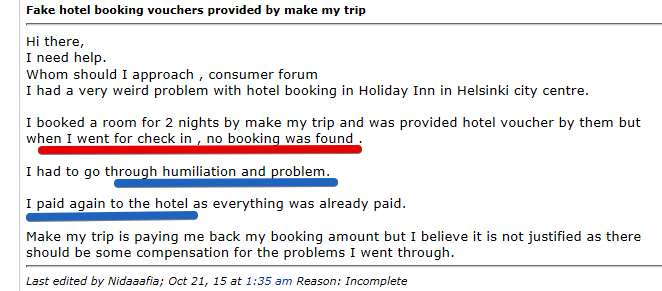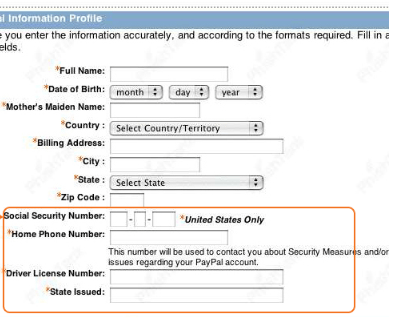So you got your leave approved, now it’s time to get started on planning your well-deserved holiday.
started on planning your well-deserved holiday.
You found some really awesome deals online and booked them without hesitation. You decide to surprise the family and keep hush until a week or so before you give them the news.
Then when the day finally arrives, you find out the worst news possible…..
There is NO booking in Mauritius at the five star hotel or that the airline has no record of your flight bookings. Oh! My God!! What just happened?
You have become the latest victim of a phishing scam. One that is now targeting unknown travellers or holiday makers.
Today I am going to take you through the process on how to recognize online phishing scams when booking for your travel or flights. I will also discuss the actions that you can take to prevent falling prey to them, and show you some of the main phishing scams targeting the travel industry.
Ready!! Great! Lets Get Started!
What is Phishing?
According to Wikipedia, phishing is defined as an attempt to acquire via electronic means(e.g. e-mail) sensitive information from people, such as their credit card details, passwords or usernames by posing as the original or trustworthy site.
As I’ve mentioned one of the mediums these scammers use is emails. These emails contain links which direct one to websites that are infected with malware. Malware or malicious software can actually cause minor or severe destruction to the computer, or obtain sensitive information, or access private computer systems.
Can Antivirus Software pick up Malware?
Antivirus software can pick malware, but given the nature of these types, it may not be able to pick up100% of them.
Remember some malware may be stealthy and their purpose is to spy or steal information from your computer. For this reason, they may be embedded within your computer for a reasonable period of time until it acts by extorting payment(from the user) or harms the files of the computer.
One action that I can recommend is for the user to make a complete back-up on a hard drive of all the important files and keep this hard drive in a safe place for those rainy days.
When it comes to phishing you’ve got to be quick and act fast and recognize whether a site is real or not. This will prevent your PC from getting infected with the Malware and save you from losing your hard earned money.
Do Phishing Scams only Target Banks and Brokerage Firms?
Absolutely Not.
As the security systems at these institutions have gotten more advanced and tightened so to speak, the “scammers,” now focus on another sector to employ their phishing tactics. People booking for online hotel accommodation or airplane tickets have become the new “bait” in these phishing scams.
Charlie Abrahams, SENIOR VICE PRESIDENT at Mark Monitor, reveals the three common travel online phishing scams that are currently circulating the internet…
Common Online Travel Phishing Scams
1.Fake Hotel Vouchers or Airline Tickets
When you are doing a “Google,” search for the best hotel rates or airline tickets, you are likely to stumble across advertisements that offer you the “best” deals.
Be wary of some of these ads. They may direct you to a site and present you with an out of this world rate, be it for accommodation or airline travel.
Actions to take
Just scout around to see if these are the real deal prices, or if the discrepancy is really high, then you know something is wrong. You can also check directly with the hotel or airline to see if there are cheaper discounts available.
2. Regular Customers
If you are a regular traveler, you may often receive e-mails from your agency about deals or discounts.
Some customers have reported to receiving e-mails stating that their,” travel points,” may be expired or that there is a “time-sensitive,” discount from their local travel agency.
The links that are embedded within these e-mails then redirect the customer to a “clone” page of the travel agent and asks for personal particulars such as Name, Credit Card details and Residential Information.
Action to take
Look for clues to see whether the site is real or not. (See below for my tips on identifying Phishing sites.)
3.Website Security
A lot of these scammers may claim within their written content, to have an association with famous brands, in order gain “trust” or “creditability” from the reader.
This may be hard to pick up on unless one does a thorough research on the “relationship.”
They may also piggyback off these names by including it as part of their own domain name, to make the site look legit.
If you are feeling uncomfortable, the best thing to do is to refresh the page and type in the original URL of the company.
Now let’s look at some of the ways on how to identify phishing websites.
⇒DO YOU WANT TO BUILD AN ONLINE BUSINESS, BUT YOU TIRED OF ALL THE ONLINE SCAMS?CHECK OUT MY NR.1 RECOMMENDED BUSINESS OPPORTUNITY HERE⇐
How Do I Recognize a Phishing Website?
As I mentioned earlier, one must be quick and fast and be able to recognize a fake site before its too late.
One of the common strategies that scammers use, is to play on your emotions. They may use words such as,”limited time offer to renew your points,” or ” Yahoo have decided that you are one of the people that the services are no longer available to…” to get you to click on that link or take the necessary action.
Here are some other things to look out for
- Fake “URL’s”
Below are two pictures, one of a Yahoo site and a Twitter site respectively. On closer examination, you can see that in the first image, the URL is fake and does not have “Yahoo,” in the URL at all!!
The second image shows a “fake” domain piggybacking off the Twitter name.


Poor Grammar
You can also see the use of poor grammar within the message.
One of the other giveaways is the use of low graphic or font resolution as in the picture depicted below.
2.Real “HTTPS” missing in URL
Another thing to spot is the https within the URL. If it is missing the “s” and standing as just “http” then it can indicate a clone site or a fake URL.![]()
3. Asking for Too Much of Information
Sometimes, a phishing site may tend to extract out more information from you than is really necessary. Here is a Paypal phishing site that tries to do exactly that.
Check out this video that shows you more ways of detecting a PayPal Phishing site. It’s only a minute long!!!( Video courtesy of Sixty Second Scams.
Conclusion
Well folks, now you know the basics of a phishing scam and how to recognize these phishing scams when booking for travel or for flights. You also have learned about the common scams that are doing the rounds within the travel industry.
⇒CLICK HERE TO LEARN MORE ON HOW TO AVOID ONLINE SCAMS⇐
Have you fallen prey to these scams? Do you know of anyone who has? Tell us about your experience.
As always, please share your thoughts or comments below.
Thanks and Take Care
Roopesh



Hi Roopesh,
Some excellent information on what to look out for with Phishing Scams. They catch out even some of the most careful of people. Always good to be reminded of what to look out for.
Hi Jenny
They certainly do. We just have to be vigilant and informed. That’s what this site is all about.
See you around
Roopesh
Thanks for the info… loved the PayPal video. PS i am a Nigerian prince who needs to launder some money could you give me your bank details LOL
Hi Donald
Glad you enjoyed the article. I would anything for a “prince” LOL
Take it easy
Roopesh
Hi
Great article I always worry about losing information online ad being hacked etc and this is a great help for what to look out for.
Once you know the signs of things to spot it can make it a lot easier, i have had friends in the past who have had their details stolen so I know how damaging it can be.
Hi Ben
Sorry to hear about your friend’s plight. It always is good to have information handy especially when it comes to knowing how these scammers work.
Thanks for your comment.
Hope to see you around.
Regards
Roopes
Great post. Very informative.
Hi Sofia
Thank you very much.
Glad you enjoyed it.
Thanks for stopping by.
Take Care
Roopesh
Hello Roopesh!
I really enjoyed the article. Your characters at the beginning had my sympathy! I can’t imagine being in that situation. Thanks so much for such a thorough and helpful article on how to avoid that. I travel to see my family, and that would be a disaster to accidentally run into a scam like that.
Hi Tiffany
It sad, that is how it goes and we need to be vigilant of whats happening around as these things take just a matter of seconds to happen.
Here are some more tips on how to avoid online scams.
All the best and take care
Roopesh